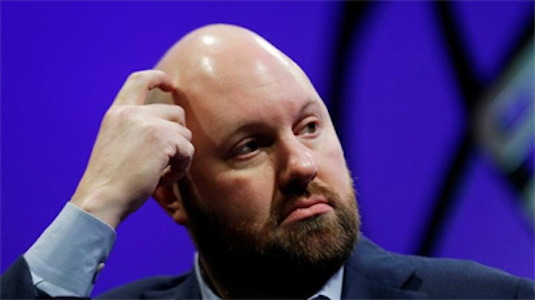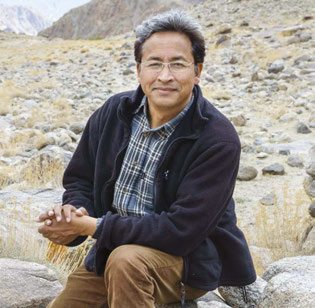
NEW YORK: A tweet by Facebook board member Marc Andreessen implying that Facebook’s Free Basics is the same as colonialism created a storm on Twitter on Wednesday, with many Indians lashing out against him on Facebook as well as on Twitter.
Andreessen wrote on Twitter: “Anti-colonialism has been economically catastrophic for the Indian people for decades. Why stop now?”
 Although the tweet was subsequently deleted, the comment — made after India‘s telecom watchdog the Telecom Regulatory Authority of India said no to discriminatory pricing of data content — led to several Indians storming the social networking sites with angry reactions.
Although the tweet was subsequently deleted, the comment — made after India‘s telecom watchdog the Telecom Regulatory Authority of India said no to discriminatory pricing of data content — led to several Indians storming the social networking sites with angry reactions.
“Now @facebook board director @pmarca suggests being colonized was good for India and we should’ve let Fb do so:),” posted prominent Indian investor Mahesh Murthy.
“…wow, claims along the lines of “colonialism would be good for us”. Like East India Company?” wrote a Twitter user with the handle @raveeshbhalla.
Andreessen, who co-founded Andreessen Horowitz, a venture capital firm, immediately retreated his tweet. “I hereby withdraw from all future discussions of Indian economics or politics. Carry on…” and then, “For the record, I am opposed to colonialism in any country,” he tweeted.
Earlier in the day, Kirthiga Reddy, MD, Facebook India, who was attending a seminar organized by the Internet and Mobile Association of India in New Delhi, refused to comment on Free Basics.
On Feb. 8, TRAI said in a much-awaited regulatory order that “No service provider shall offer or charge discriminatory tariffs for data services on the basis of content.”
“No service provider shall enter into any arrangement, agreement or contract, by whatever name called, with any person, natural or legal, that has the effect of discriminatory tariffs for data services being offered or charged to the consumer on the basis of content,” the watchdog added.
Reacting to the TRAI order, Facebook said it was “disappointed with the outcome,” but will continue its “efforts to eliminate barriers and give the unconnected an easier path to the Internet.”
A day after India’s telecom watchdog said no to Facebook’s Free Basics, the social networking giant’s founder and CEO Mark Zuckerberg conveyed his disappointment in a post but reiterated his commitment to keep working to break down barriers to connectivity in India.
“India’s telecom regulator decided to restrict programs that provide free access to data. This restricts one of Internet.org’s initiatives, Free Basics, as well as programs by other organizations that provide free access to data,” the 31-year-old billionaire posted on Feb. 9.
“While I am disappointed with the decision, I want to personally communicate that we are committed to keep working to break down barriers to connectivity in India and around the world. Internet.org has many initiatives, and we will keep working until everyone has access to the internet,” Zuckerberg added.
Everyone in the world should have access to the internet.
“That’s why we launched Internet.org with so many different initiatives — including extending networks through solar-powered planes, satellites and lasers, providing free data access through Free Basics, reducing data use through apps, and empowering local entrepreneurs through Express Wi-Fi,” he wrote.
Ironically, Facebook’s Internet.org was launched a year back in India, which was later named Free Basics.
According to Zuckerberg, their work with Internet.org around the world has already improved many people’s lives as more than 19 million people in 38 countries have been connected through Facebook’s different programs.
“Connecting India is an important goal we won’t give up on, because more than a billion people in India don’t have access to the internet,” he posted.
“We know that connecting them can help lift people out of poverty, create millions of jobs and spread education opportunities. We care about these people, and that’s why we’re so committed to connecting them,” the Facebook CEO added.
“Our mission is to make the world more open and connected. That mission continues, and so does our commitment to India,” he concluded.





Be the first to comment